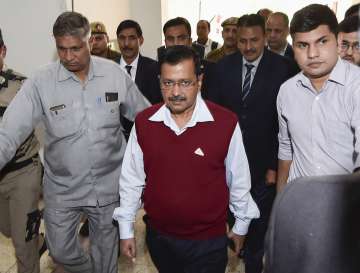The Delhi assembly on Friday passed a resolution against the implementation of the National Population Register (NPR), in a specially convened one-day session on Friday.
Delhi chief minister Arvind Kejriwal requested the Centre to withdraw both the NPR and the yet-to-be-introduced Nationwide Register of Indian Citizens (NRIC), reasoning that he, along with 60 members of the assembly, didn’t have birth certificates.
When Kejriwal asked if any MLAs in the 70-member-house had their birth certificates on them, only nine members raised their hands.
What’s the difference between proposed NPR in 2020 and the last NPR in 2010?
As Delhi assembly became the latest to adopt an anti-NPR stance, here is a look at is making the non-BJP governments jittery about the revised NPR.
According to an article in The Print earlier this week, the new NPR not only seeks details such as voter ID number, driver’s license and Aadhar numbers, it also calls upon the respondents to state their date and place of birth of their parents.
Further, the new NPR also seeks information on the mother tongue of the respondents.
While the Union Home Minister Amit Shah stated in Parliament during a debate on Delhi riots over Wednesday and Thursday that no documents needed to be produced during the upcoming NPR exercise, fears have been expressed over the provision of legal penalty if one refuses or conceals information sought by the surveyor.
Also read: I too have no birth certificate: Telangana CM K Chandrashekhar Rao on NPR
